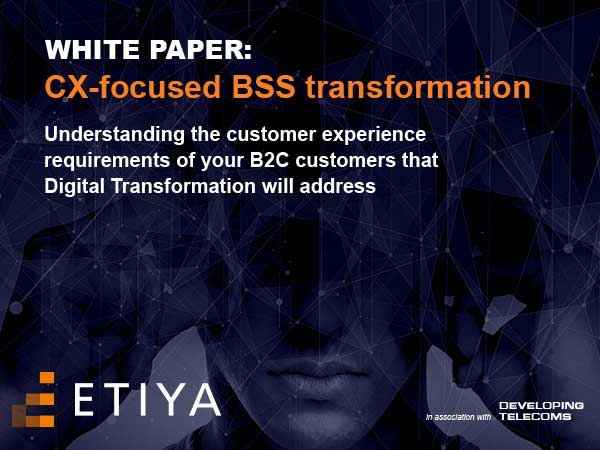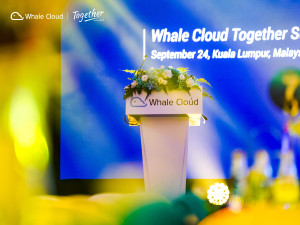In recent years, technological advancements have completely overhauled our expectations around how we use communications services.
Hundreds of millions of connected customers now have a ‘digital lifestyle’ that requires connectivity on a daily basis – whether it’s accessing the internet or mobile apps, e-commerce, online self-service, social media channels, or the metaverse.
However, the speed at which these changes arrive can make it hard for CSPs to keep up with customers’ ever-changing requirements, with many still using inflexible legacy stacks. Digital transformation is therefore the only way for them to modernize their business support systems. Upgrading to a sustainable, future-proof digital BSS will allow them to satisfy customer needs as they evolve, thereby ensuring excellent customer experience.
As a first step, it is crucial for CSPs to both know and anticipate their customers’ needs so that they know what to prioritize in order to remain competitive, meet upcoming market demands, and ensure future growth for their business.
So, what are the key CX requirements that CSPs should be aware of when embarking on a transformation journey?
Convergence is an essential part of digital transformation. Most households today use several communication services - including mobile, fixed line, internet, and TV – and some or all of these are often contracted from the same company. With many CSPs still having siloed operations, these services can be provided by different divisions of the same company, but will use their own set of business support systems that do not communicate with each other. This means that consumers are not only forced to interface with separate customer service facilities and purchase flows, but also receive multiple individual monthly invoices from the same company.
Therefore, at the core of a modern digital BSS there should be a convergent product catalog that can accommodate the entire range of products offered by the individual business units. This solution enables companies to handle products from different lines of services (eg. mobile, fixed line, TV, internet) in one single purchase flow, thereby also allowing them to create one single customer care suite covering all product lines. This kind of convergent product catalog will provide other BSS modules with all relevant pricing, discounting and eligibility rules, and allow CSPs to create multiplay bundles with ease.
As part of a convergent solution, the billing and charging platform should also be able to charge for these complex multiplay subscription bundles in one single monthly invoice, further streamlining operational complexity and improving customer experience.
Another major aspect of customer experience that CSPs must improve is personalization. While mass-market campaigns can be useful and convenient, it’s no longer enough for companies to expect consumers to use services in a certain way based purely on their demographic; even compared to 5-10 years ago, customers increasingly expect companies to understand their individual requirements more thoroughly. They respond to personalized offers tailored to their lifestyles - and if CSPs are able to offer this, they will be rewarded with improved customer loyalty.
To achieve this, companies need to know their customers – not just store their customer data. Based on usage habits and behaviors, CSPs can begin to predict the needs of their users and create bespoke offers and services accordingly. Without an AI-driven modern CRM system, it is not possible to create the right segmentation, analyze the right data, and predict user requirements accurately. Advanced campaign management tools are essential for marketers to design and deliver personalized offers quickly within any channel, using the AI-supported optimization engine. This helps CSPs enhance customer satisfaction in the long term by letting customers feel that they are appreciated and understood, by providing them with tailored and optimized offers.
As CSPs provide more customized offerings for each subscriber, they must also acknowledge that customers demand flexibility in managing their purchases and services, however and whenever they want. Not so long ago, self-service was considered a bonus, but during the pandemic it became essential to allow customers access to products and services when traditional channels were not available.
While certain issues will always need human interaction, many routine cases and processes can be automated and fully completed online without the need to involve an actual agent. With digitalization and automation of workflows, CSPs will be able to empower users, and provide faster and more flexible customer care that is available any time. Self-care can be used even on-the-go, so that customers do not have to go to a store, queue for a long time, or wait for manual processes to be completed. Getting the right support quickly when in need of help is a significant factor in improving both customer satisfaction and long-term brand loyalty.
The automation of workflows won’t just enable quicker complaint and case handling - for complex or unique customer issues, it will also support better dedication of CS resources to solve problems according to specific agent competencies.
As a starting point for smart interactions, CSRs need to see all relevant data and interaction history in one place, in a 360-degree customer view. On top of that, with the appropriate AI and ML tools in the background, a comprehensive sentimental, contextual and customer behavioral analysis will provide predictive and prescriptive customer service recommendations to always offer the most tailored solutions to users.
As part of this flexibility in managing purchases and services, it is also paramount for customers to have the opportunity to use channels in line with their individual usage habits and preferences, and this can also vary depending on which one is more convenient for a certain type of transaction. The new digital lifestyle brings various online channels into the picture, and customers do not need to rely on the traditional physical store or phone options any more.
CSPs must enable customers to manage their interactions via their preferred channel, and from their preferred device. If required, they should also be able to use several channels or devices within one flow – for example by starting a purchase on their mobile, completing it on a computer, modifying it on their phone, then finally picking up the order in-store.
This type of omnichannel approach lets companies provide a seamless, consistent, and unified customer experience. No matter what kind of device or channel you use, you’ll get the same information, the same content and you can perform the same operations. It also ensures that each channel is aware of what has been completed elsewhere, so any process suspended on one channel can be picked up and continued on another.
Last but not least, simplicity of interaction is paramount – customers want transactions to be conducted easily and transparently, as described above. Complex processes must be simplified, as no one wants to go through a process once, then have to re-learn it each time they use the same function due to incremental changes. If a process is too complicated or time-consuming, customers will abandon it and find another service provider that offers simpler, faster processes and more intuitive interfaces.
To achieve all this, digital transformation is essential for CSPs to modernize their business support systems, letting them break down silos and complex, sometimes overlapping processes to create faster, simpler, and more transparent flows. Etiya’s Digital BSS can help address all the key CX requirements that CSPs are facing. A convergent Product Catalog and a Revenue Management platform offer simpler, more flexible creation of new products and bundles, as well as shorter time-to-market. Etiya supports companies in delivering outstanding personalized campaigns, offering smart customer interactions and flowless order fulfilment, either by implementing its own AI platform or by providing its AI-supported products according to the needs of the customer. With an omnichannel Customer Service Management it will create simpler care processes by eliminating manual tasks, introducing automation, providing comprehensive self-care, and offering simpler, more intuitive interfaces.
About Etiya
Etiya provides customer experience-focused AI-driven Digital Transformation with its own award-winning BSS product portfolio, that also incorporates innovative AI technologies. We offer end-to-end digital transformation, with a scalability to handle millions of orders per day, and we serve over 100 million subscribers worldwide.
We firmly believe that technology solution partners should not only be product suppliers, but also reliable, long-term stakeholders of commercial and technology leaders, who provide consultancy and guidance to navigate in a constantly changing technological environment. With our products and solutions CSPs worldwide can both offer outstanding customer experiences, and implement operational efficiencies, by enabling personalization and process automation.
Etiys's TM Forum compliant BSS solution offers the strategic enablers for a sustainable and successful digital transformation: modules have a rich feature set, a high level of flexibility, they are pre-integrated, easy to implement and open APIs compliant. The use of microservices enables agility, adaptability, scalability, and faster time to market.
For more information visit www.etiya.com





























